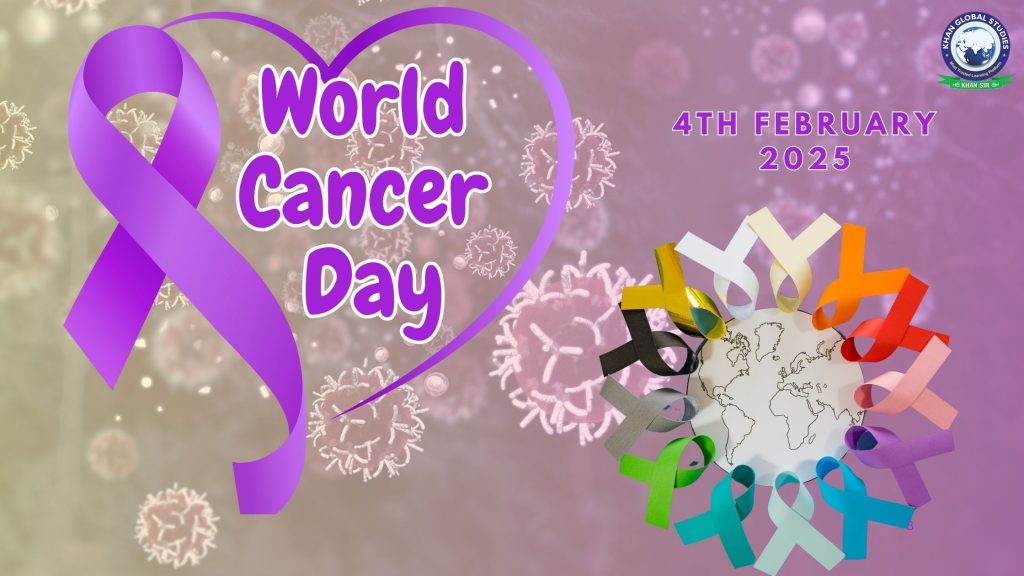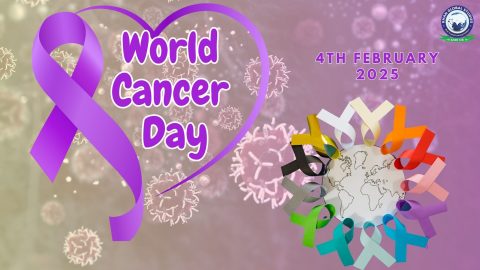World Cancer Day 2025 is an annual global event observed on February 4 to raise awareness about cancer, promote early detection, encourage prevention and support people affected by the disease. Organised by the Union for International Cancer Control (UICC), the event aims to unite the world in the fight against cancer. Every year, millions of people participate in activities, campaigns and educational initiatives to spread knowledge and take action against one of the leading causes of death worldwide.
History of World Cancer Day
World Cancer Day was established on February 4, 2000, at the World Summit against Cancer for the New Millennium in Paris. The Paris Charter, signed by various organisations, government representatives and cancer experts, underlined the importance of coordinated efforts to fight cancer.
Since its inception, World Cancer Day has played a vital role in promoting awareness, encouraging early detection, and reducing cancer-related mortality worldwide. The initiative has led to significant advances in cancer research, access to treatment, and global policy changes.
Significance of World Cancer Day
The impact of World Cancer Day goes far beyond awareness – it serves as a powerful movement to encourage action, promote research, and support patients battling cancer. Here’s why the day is important:
- Raise Awareness: Cancer remains a major global health concern. With millions of new cases diagnosed each year, it is important to spread awareness about risk factors, symptoms, and treatment options.
- Promote Early Detection: Early detection significantly increases survival rates. World Cancer Day encourages regular checkups and screenings, which help identify cancer in its earliest stages.
- Encourage Healthy Lifestyles: Many cases of cancer are preventable. The campaign educates people about healthy eating, regular physical activity, avoiding tobacco and alcohol, and maintaining a balanced lifestyle to reduce the risk of cancer.
- Supporting Cancer Research and Treatment: Advances in cancer research and innovative treatments have saved countless lives. Increased funding and awareness campaigns contribute to the development of new therapies and drugs.
- Providing Support for Patients and Survivors: World Cancer Day highlights the importance of emotional, psychological, and financial support for patients and survivors. Many organizations provide counseling, financial aid, and advocacy programs to help those affected.
- Policy Advocacy and Government Action: Governments around the world participate in discussions on cancer care policies, funding for research, and better healthcare access to improve cancer-related medical services.
Benefits of Celebrating World Cancer Day
- Spreading Global Awareness: World Cancer Day ensures that information about cancer prevention and treatment reaches people around the world through campaigns, media coverage, and educational programs.
- Encouraging Preventive Measures: Spreading awareness makes people more conscious of their health, leading to a reduction in cancer risk factors such as smoking, unhealthy diet and sedentary lifestyle.
- Promoting Scientific Research and Innovation: Funds raised through World Cancer Day events contribute to scientific breakthroughs, better treatment options and cutting-edge medical technologies.
- Strengthening Community Support: Many organizations organize support groups, counselling sessions and rehabilitation programs to help patients cope with their diagnosis.
- Increasing Access to Treatment: World Cancer Day highlights global efforts to provide affordable and accessible healthcare services for all, ensuring that cancer treatment reaches even the most deprived communities.
Conclusion
World Cancer Day 2025 is not just a date on the calendar – it is a movement that reminds us of the importance of collective action in the fight against cancer. Millions of people are affected by this disease, and continued efforts in awareness, prevention, early detection and treatment can save lives. Governments, organisations, healthcare professionals and individuals all have a role to play in ensuring that cancer care is accessible, affordable and effective for all.
By participating in awareness campaigns, adopting healthy habits, supporting research initiatives and standing in solidarity with cancer patients, we can make a meaningful impact and get closer to a world free from the burden of cancer.
Frequently Asked Questions (FAQ)
Q: What is the theme of World Cancer Day 2025?
A: The official theme of World Cancer Day 2025 has not been announced yet, but it will continue to align with the “Close the Care Gap” campaign, which focuses on reducing health disparities in cancer treatment and prevention.
Q: How can I participate in World Cancer Day 2025?
A: You can participate by spreading awareness on social media, donating to cancer research organizations, organizing educational events, wearing blue and orange ribbons, and encouraging regular health checkups.
Q: Why is World Cancer Day celebrated on February 4?
A: World Cancer Day was established on February 4, 2000, during the World Summit for the New Millennium to promote global efforts in cancer prevention, research, and treatment.
Q: What are the most common types of cancer worldwide?
A: The most common types include lung cancer, breast cancer, colorectal cancer, prostate cancer, and stomach cancer. Awareness and early detection are key to reducing mortality.
Q: How can I reduce my risk of getting cancer?
A: You can reduce your risk of cancer by maintaining a healthy diet, exercising regularly, avoiding tobacco and excessive alcohol consumption, getting vaccinated (e.g., HPV and hepatitis B vaccines), and having regular medical checkups.
Q: What role do governments play in cancer prevention?
A: Governments implement policies to promote cancer screening, fund research, regulate harmful substances such as tobacco, and ensure equal access to health services.
Q: What color ribbon represents World Cancer Day?
A: The official colors of World Cancer Day are blue and orange, which symbolize solidarity in the fight against cancer.
Q: Can cancer be completely cured?
A: While many types of cancer can be successfully treated, a complete cure depends on factors such as the type of cancer, the stage at diagnosis, and treatment options. Advances in medical research continue to improve survival rates.
World Cancer Day 2025 serves as a reminder that together we can make a difference in the fight against cancer. Spreading awareness, supporting research, and advocating for equitable healthcare access can help reduce the impact of cancer on individuals, families, and communities around the world.





